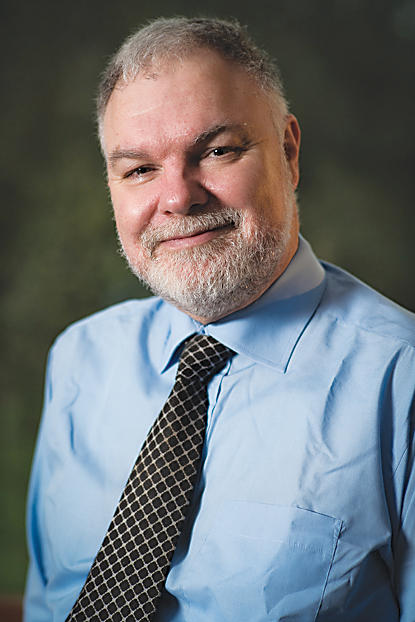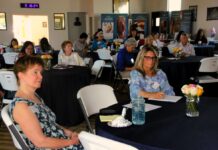Dr. Petroc Willey, whose array of titles include director of the newly formed Catechetical Institute at Franciscan University, author and appointed consultor for the Pontifical Council for the Promotion of the New Evangelization in Rome, is returning to the Diocese of Phoenix.
He was here in January to speak at a symposium through the Kino Catechetical Institute. Now, it’s parish catechists and Catholic school educators who will hear from “the foremost English-language-speaking expert on the Catechism.”
Catechetical Congress
8:30 a.m.-5 p.m., March 10
Full agenda
Phoenix Convention Center – West,
100 N. Third St., PhoenixThe gathering begins with an 8 a.m. Mass at St. Mary’s Basilica and
continues with the Congress which includes practical sessions, parent planning, youth leader tracks,
scriptural formation and more.Cost: $30
CLICK HERE for more information or call Ana at (602) 354-2323
Willey will share “God’s Pedagogy: A Family Model for Education” during the diocesan in-service March 9. He co-founded a homeschooling association in England with his wife because Catholic schools there, though abundant, lacked strong Catholic identity and teachers.
On March 10, he will address an estimated 300-400 parish catechists at the Catechetical Congress, which features formation and hands-on workshops. Willey’s keynote talk focuses on “The Family: Living Symbol of the Father’s Loving Plan.”
“He is going to bring back to us that the family, the domestic church, is directly related to the strength of the Church itself and all of our catechetical efforts must be directed at equipping parents in their roles as primary educators or assisting them with this important task. We cannot underestimate the role of the family,” said Angela Gaetano, director of parish leadership support.
Secular and faith-based studies reveal the irreplaceable role of parents in a child’s faith formation. Willey’s “gentleness in working with souls” conveys that vital role, Gaetano said.
Willey spoke with The Catholic Sun about his faith life growing up, the state of catechesis at the parish and school level and how adults can become better models of the faith.

Sun: What are some things you suspect catechists are doing right in their ministry?
Dr. Willey: One of the things that really strikes me is the generosity of the volunteer catechists in terms of the time they gave for the sake of those they’re teaching.
The challenge for all of us is finding that time and energy and enthusiasm for remaining in formation [ourselves]. A ministry is where you give … of yourself with conviction and energy and what is so important is to keep in mind the need to spend time with the Lord so that He can take care of you! Otherwise, there tends to be a gradual burnout.
Sun: You’ll be talking about the family, which can look very different from one domestic church to another. What was your family faith life like growing up?
Dr. Willey: It’s a really interesting one. I was raised Protestant, but eventually most of my family converted to Catholicism. We’re very much a work in progress — all of us. Five of the six of us became Catholic.
Also, two of my siblings are adopted. We’re very mixed, culturally. My mom is from London and my dad is from a rural part of England.
It provided a good foundation for me growing up. We’ve all come over to the States now. Three of my children are at Franciscan. One is at John Paul the Great. My wife and I are just getting to know empty-nester syndrome.
Sun: Did you know Christ growing up or how did you come to know Him?
Dr. Willey: I was raised in a deeply Christian home but, like many, neglected the faith in my teen years. Reading the Gospel of Luke brought me back eventually. A number of people come back to the Church by reading the Gospel. It’s interesting how powerful it is just to read the Gospel beginning to end.
My re-engagement came back in my late teens. I was drawn particularly in the direction of a monastic vocation which got me in the Catholic Church. From that point, I knew I wanted to respond by giving myself 100 percent to God, but I didn’t know how to do that. I realized that, as a Protestant, I didn’t before have a sense of an ongoing tradition. It’s more that you just gave your life to Christ and that was your moment… but now I knew I needed a path to walk on.
Catholicism has that sense that every day you’re in a place of needing conversion. … I ultimately found my vocation in marriage — and a second vocation in teaching. Now, I couldn’t be in any better place.
Sun: What can catechists do to help parents better equip and encourage families to be more active in their domestic church?
Dr. Willey: The first thing is let parents know that they really are the key educators. Without the parents’ involvement, it’s very hard to provide an adequate substitute. Parents very rarely think of themselves as the key figures for their children, and there can often be a sense of inadequacy in the light of what is seen as a professional environment. But they are the key figures — and not least because all catechetical ministry is a relational ministry.
Sun: What are some of your “go to” resources — books, apps, videos — for growing in the faith personally? For teaching it?
Dr. Willey: For me personally, for growing in the faith, I always go first to the Scriptures and the Catechism. Reading these, studying these, absorbing these — it’s like water on a stone that slowly but surely makes an impression!






